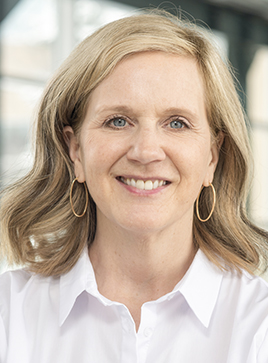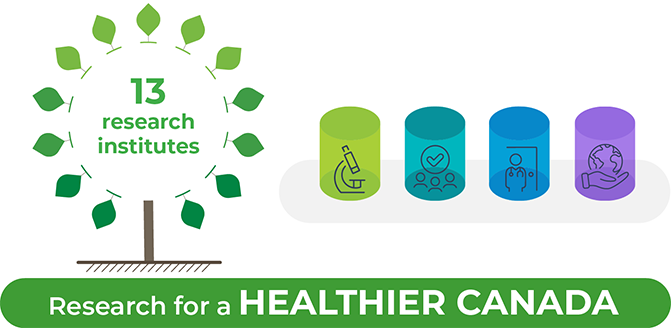Health services research (Pillar 3)
Here in Canada, we have a publicly funded health care system that is designed to provide the care we need when we’re sick, need a medical test, require surgery, want advice on how to improve our overall health, and more.
But that doesn’t mean our health care system is perfect. Some health services—such as dental care, mental health services, or some prescription drugs and medications—are not covered under Canada’s publicly funded system. This means Canadians need to pay for these services through private insurance or as an out-of-pocket expense. And while Canada is not the only country to do this, since all countries rely on a combination of public and private health care financing, it can create additional challenges and cost-related inequities for many Canadians seeking care.
Adding to this complexity is the fact that Canada’s health care “system” is actually a mix of federal programs and 13 distinct provincial and territorial systems, meaning the responsibility for health care in Canada is shared between federal, provincial, and territorial governments. This is beneficial when it comes to setting national health standards or tailoring approaches to specific communities and geographic regions—but it can also make things complicated.
For the sake of simplicity, we’re referring to the overall Canadian health care system. But even if you think of it as one overarching system, there are still many layers involved. Has your family doctor ever referred you to a specialist? Have you ever had surgery and required post-operative care or rehabilitation? Or have you (or your children) navigated the switch from pediatric care to adult care for complex needs or mental health support? All of these scenarios involve tying multiple parts of the health care system together. Sometimes the transitions from one part to another can be less than ideal, highlighting the need for better integration throughout the entire health care system.
At the same time, we also have increasing demand for services, significant financial pressures, and unprecedented rates of burnout among health care providers. And we must address systemic racism and discrimination, as well as the gaps in access to care that exist in rural, remote, and northern communities.
Fixing these issues can be daunting—but that’s where health services research can help.
What does health services research do?
Health services research addresses a wide range of service, system, and policy challenges, such as:
- How can we make sure everyone has a family doctor or primary care provider?
- When, where, and how can virtual care play a role in supporting patients? And how can we ensure top-notch care with this approach?
- What are the best ways to address growing wait times in emergency departments?
- Are some health care policies becoming outdated? Which ones? And is a better option available—or possible—based on existing studies?
- With limited resources, how can we make improvements in one area of care without making others worse?
- How can we make sure the health care system is fair, efficient, seamless and sustainable for everyone involved?
To tackle these types of questions (and more!), researchers collect and analyze data, run pilot studies and larger interventions, and examine the use of care systems and technologies in other countries. These activities generate the evidence we need to improve the way health care services are organized, supported, and delivered.
Such complex challenges require a multidisciplinary approach, so the work often includes the passion and expertise of people from a variety of research fields, including health economists and statisticians, health care providers, policy makers, program administrators—and, of course, patients themselves.
Show me the research!
Browse the stories below to learn more about real-life health services research taking place across the country.

Dr. Douglas Lee
Toronto General Hospital Research Institute

Dr. Emily Gard Marshall
Dalhousie University

Dr. Heather Hadjistavropoulos
University of Regina

Dr. Shabnam Asghari
Memorial University of Newfoundland
Surging ahead: How an innovative digital platform is helping reduce emergency room wait times

Dr. Tom Stelfox
University of Calgary

Dr. Naana Afua Jumah
Northern Ontario School of Medicine
Hearing Our Voices: How a web-based curriculum is leading to better health care
Features
- Date modified:



